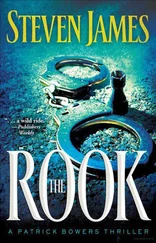James Becker - Echo of the Reich
Здесь есть возможность читать онлайн «James Becker - Echo of the Reich» весь текст электронной книги совершенно бесплатно (целиком полную версию без сокращений). В некоторых случаях можно слушать аудио, скачать через торрент в формате fb2 и присутствует краткое содержание. Жанр: Триллер, на английском языке. Описание произведения, (предисловие) а так же отзывы посетителей доступны на портале библиотеки ЛибКат.
- Название:Echo of the Reich
- Автор:
- Жанр:
- Год:неизвестен
- ISBN:нет данных
- Рейтинг книги:3 / 5. Голосов: 1
-
Избранное:Добавить в избранное
- Отзывы:
-
Ваша оценка:
- 60
- 1
- 2
- 3
- 4
- 5
Echo of the Reich: краткое содержание, описание и аннотация
Предлагаем к чтению аннотацию, описание, краткое содержание или предисловие (зависит от того, что написал сам автор книги «Echo of the Reich»). Если вы не нашли необходимую информацию о книге — напишите в комментариях, мы постараемся отыскать её.
Echo of the Reich — читать онлайн бесплатно полную книгу (весь текст) целиком
Ниже представлен текст книги, разбитый по страницам. Система сохранения места последней прочитанной страницы, позволяет с удобством читать онлайн бесплатно книгу «Echo of the Reich», без необходимости каждый раз заново искать на чём Вы остановились. Поставьте закладку, и сможете в любой момент перейти на страницу, на которой закончили чтение.
Интервал:
Закладка:
Just over thirty minutes after the journey had started, he knew he’d been right, as the big saloon car slowed down virtually to a walking pace, and he caught just the briefest glimpse of the shadow of a barrier lifting ahead of the Mercedes, which meant they’d just passed through a toll booth. And because they hadn’t come to a complete stop, he guessed the car was equipped with one of the electronic devices that recorded the date, time and place where the vehicle entered and left the toll road system. That might be a helpful piece of information to identify where he was being taken, and he memorized the exact time on his watch.
After that, the vehicle drove for a further fifteen minutes or so on the normal roads, negotiating roundabouts and stopping at traffic lights, and then finally came to a halt. The noise of the engine echoed strangely as the car slowed down, and Bronson was aware of a sudden darkness outside the windows. He wondered if the Mercedes had been driven into a garage or a warehouse, or something of that sort. He glanced down again at his watch, and memorized that time as well.
The doors opened and the other occupants of the vehicle stepped out.
“We’re here,” one of them said, and tugged on Bronson’s arm to show that he should get out of the car.
As Bronson complied with the instruction, he heard a banging sound from somewhere behind the Mercedes, and guessed that the outer doors of whatever building they were in were just being closed.
“You can take off the glasses,” he was ordered.
Bronson slipped the glasses into the breast pocket of his jacket and looked around. It wasn’t a warehouse-which he supposed made a change after his recent experiences-but a large garage, perhaps forty feet long by thirty wide, with four other vehicles parked neatly against one wall. It obviously wasn’t a public parking facility, and he guessed that it was either part of the customer parking area of a commercial garage or maybe even a garage for a company or a large private house. The floor was concrete, painted light gray, while the walls and ceiling were made of the same material but painted white. Fluorescent lights were evenly spaced across the ceiling, and provided stark illumination.
He glanced behind him and saw that one of the two BMWs from the station rendezvous had followed them into the garage and had parked directly behind the Mercedes. Two men had just climbed out of it, and one of them was aiming a remote control at a pair of wide metal doors through which the vehicles must have driven. The second door was just swinging closed. At the other end of the open space another metal door, presumably a fireproof door, was set into the wall between two of the parked cars.
“This way.”
The man opened the fire door and led the way down a short passage, again fabricated from concrete, painted white and lit by another pair of fluorescent ceiling lights.
At the end was a small lobby, a concrete staircase ascending on the left-hand side, while on the right were the unmistakable steel doors of a lift. The man walked across to the control panel and pressed one of the buttons, which immediately illuminated. Bronson heard the sound of an electric motor, and a few seconds later the doors slid to one side to reveal the interior of a small lift, probably intended to hold only five or six people. The three of them stepped inside it, and moments later the doors slid closed and the lift began to go up.
Bronson guessed they’d only ascended perhaps two or three floors when the lift stopped and the doors opened again.
They stepped out into another small lobby, about the same size as the one they’d just left, but that was where the resemblance ended. This room was paneled in wood-Bronson thought it might be mahogany, but he frankly didn’t know-with a thick carpet on the floor and a high ceiling featuring ornate cornices and a single crystal chandelier in its center. A handful of easy chairs were dotted about the room, perhaps so that people waiting for the lift would have somewhere to sit. Opposite the lift was a short flight of steps, at the top of which two tall wooden double doors stood open, and beyond them another room beckoned.
The man who seemed to be in charge led the way up the stairs and through the doors. The new room was much larger than the lobby, about three times its size, but shared the same ornate decoration and comfortable-looking furniture. Three chandeliers cast a clear light over the room, which reminded Bronson of pictures he’d seen of Victorian withdrawing-the name later shortened just to “drawing”-rooms, with easy chairs grouped around low tables where people could gather after formal dinners and enjoy a coffee or a liqueur.
He wasn’t sure what he’d been expecting, but it certainly wasn’t this. He could have been a guest in a country mansion somewhere in England, rather than in a house-he assumed that’s where he was-on the outskirts of the German capital.
“Good evening, Mr. Bronson,” a cultured voice said from somewhere in the room, the greeting sounding uncannily similar to the way the villain always seemed to address the hero in the James Bond films. The man’s German accent was unmistakable, but his English was perfectly understandable.
Bronson looked around, and as he did so a slight individual, probably no more than five feet seven or eight, and with a very slim build, stood up from an easy chair a few feet away. He was wearing an immaculately tailored dark brown suit and gleaming black shoes. He had a fair complexion, his hair an indeterminate shade of blond, and very blue eyes. Bronson estimated the man’s age at something over fifty, though he guessed he could easily be ten years out either way. But the overwhelming impression was one of youth. Somehow he seemed much younger than he looked.
The man stepped forward briskly to where Bronson was standing and extended his hand.
“My name is Marcus,” he said, giving Bronson’s hand a vigorous shake, “and Georg has told me quite a lot about you. He said you’d actually shot your way out of a police ambush. Not the sort of behavior one would expect to witness in the Home Counties, Mr. Bronson, but perhaps indicative of the kind of man you seem to be. Georg was very impressed.”
Bronson shook his head slightly. “It was actually a lot less dramatic than it sounds,” he replied. “All I did was shoot out one of the tires of the police van, just to immobilize it.”
Marcus looked at him for a moment, then smiled slightly. “If you say so,” he replied. “Anyway, Georg seems to be quite satisfied that you are who you say you are, but for me there’s still something of a question mark above your head. As you might have guessed, our organization operates below the surface, shall we say, of polite society. We take extreme care that none of our personnel ever come to the notice of the forces of law and order, though of course our work is on display for all to see.”
It was a somewhat surreal conversation. Bronson knew, perfectly well, that the German was talking about acts of terrorism, or acts of sabotage at best, but he could have been the director of a legitimate company discussing its products and public image with a fellow businessman.
“And that, you see, is the problem with you. As I said, we avoid the police as much as we can, but you are a former police officer, which puts us into something of a quandary. You wouldn’t be here at all without Georg’s strong recommendation.”
Bronson shook his head. “Look,” he said, “Georg sent me to meet you here in Berlin. It wasn’t my choice, though it did suit me to get out of the country for a while, just because of what had happened at the industrial estate. If you’re unhappy with my being here, I can just go back. That’s no problem for me.”
Читать дальшеИнтервал:
Закладка:
Похожие книги на «Echo of the Reich»
Представляем Вашему вниманию похожие книги на «Echo of the Reich» списком для выбора. Мы отобрали схожую по названию и смыслу литературу в надежде предоставить читателям больше вариантов отыскать новые, интересные, ещё непрочитанные произведения.
Обсуждение, отзывы о книге «Echo of the Reich» и просто собственные мнения читателей. Оставьте ваши комментарии, напишите, что Вы думаете о произведении, его смысле или главных героях. Укажите что конкретно понравилось, а что нет, и почему Вы так считаете.












